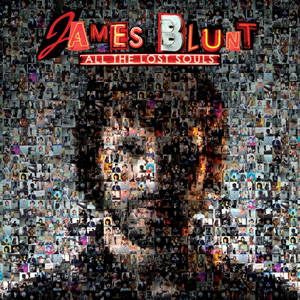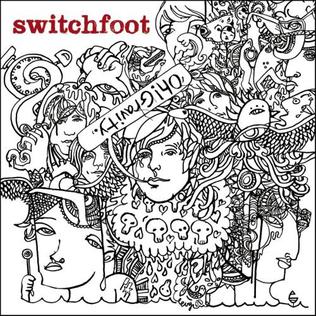 Just when you thought you had reached the limit of human ingenuity, Radiohead proves you wrong again. Honestly, who’d have thought of releasing a new studio album completely on the internet, and letting the consumer decide the price? That enterprise flies in the face of a long history of capitalism and consumerism, and makes you (or me, at the very least) think, “They can’t do that! …Can they?” They can, they did, and they were hugely successful doing it. Mind you, “successful” is not the same thing as “$ucce$$ful.” I admit I got the new album In Rainbows the day it came out for £0. I imagine most people were like me, thinking that if the album could be had for nothing, why not? But success is not measured in money amounts, but in number of people who have heard, and like, your music. That’s a pretty revolutionary idea, and there’s no one better than Radiohead to give it a try.
Just when you thought you had reached the limit of human ingenuity, Radiohead proves you wrong again. Honestly, who’d have thought of releasing a new studio album completely on the internet, and letting the consumer decide the price? That enterprise flies in the face of a long history of capitalism and consumerism, and makes you (or me, at the very least) think, “They can’t do that! …Can they?” They can, they did, and they were hugely successful doing it. Mind you, “successful” is not the same thing as “$ucce$$ful.” I admit I got the new album In Rainbows the day it came out for £0. I imagine most people were like me, thinking that if the album could be had for nothing, why not? But success is not measured in money amounts, but in number of people who have heard, and like, your music. That’s a pretty revolutionary idea, and there’s no one better than Radiohead to give it a try.In addition to being an innovative marketing scheme, In Rainbows is a thick and challenging album, as any Radiohead album is expected to be. It starts off with a distorted synthesizer percussion sound, the opening of the song “15 Step,” which has a 5/4 time signature. Indeed, odd beat numbers are not new to Radiohead; I’m still trying to figure out “Pyramid Song.” No, what makes this song unique is that it’s infused with an energy and optimism not heard from the band in a while. In comparison to the rest of Radiohead’s work, “15 Step” is downright gleeful. Then comes “Bodysnatchers,” where the energy becomes even more pronounced. They haven’t done music this caffeinated since “Electioneering” on OK Computer, and that was 10 years ago. Finally, Radiohead has connected with that youthful spirit that possessed them on Pablo Honey and (to a more measured degree) The Bends.
With “Nude,” “Weird Fishes/Arpeggi” and “All I Need,” things slow down and get calmer. In general, the album floats between heavy and soft, balancing the two in such a way that you don’t even notice where one ends and the other begins. Not every song works, though, and at only 10 tracks, that’s costly. “Faust Arp” is really too short to make much of an impact. “House of Cards,” which is gentle and whispering, is also pretty bland. However, it’s worth noting that it starts off with the lyrics “I don’t want to be your friend / I just want to be your lover.” While this may seem like standard fare for any other band, this represents a completely new direction for Radiohead. Songs about actual human relationships?!? Surely you jest!
“Reckoner” is relentless and doomy, and “Jigsaw Falling Into Place” moves forward in a way that most of the album does not, refreshing you near the end. Closing the album is “Videotape,” which sounds straight out of the Kid A/Amnesiac sessions. It’s malleable, haunting, and kind of beautiful, in a very Radiohead way.
As always, In Rainbows takes a few listens to really gel. Except this time, I thought it was pretty good on my first listen, and by the 10th listen, I realized it was almost genius. All other Radiohead albums are very good in an individual way, but this one is special because it covers all the bases, sounding like a beautiful amalgam of every album. It’s a unique animal among Radiohead’s discography, but I realize that every Radiohead album is unique, which only reinforces my statement about this being an amalgam. In Rainbows leaves me wondering where Radiohead can possibly go after this, but I do it with excitement. I can’t wait to see what brand new territory they’ll push themselves into next.
Bodysnatchers
Jigsaw Falling Into Place
Nude
Reckoner
















